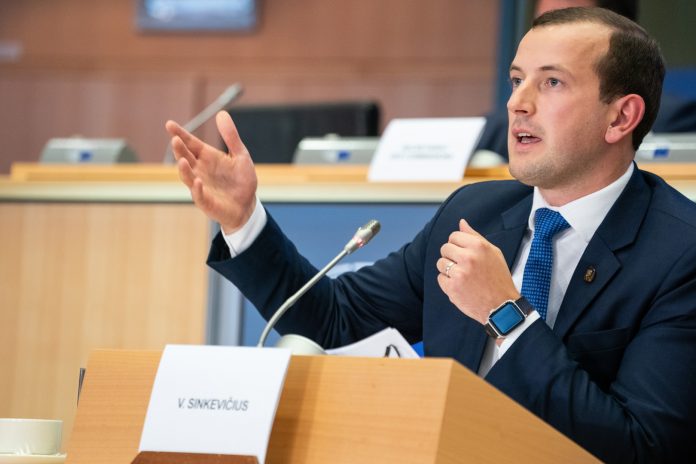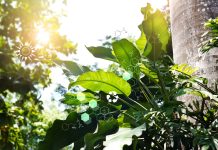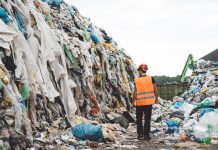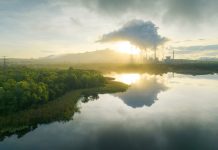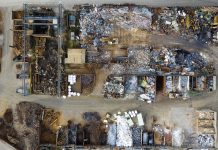Here, we look at the European Commission’s environment, oceans and fisheries policies, a role that is headed up by European Commissioner, Virginijus Sinkevičius
Appointed in 2019 as the European Commissioner for Environment, Oceans and Fisheries, Virginijus Sinkevičius has a number of critical missions which must help deliver on the European Commission’s climate ambitions. During his time in this role, he aims to conserve Europe’s natural environment, by reducing emissions, protecting biodiversity, improving the health of our citizens and ensuring the sustainability of our economy will be cross-cutting priorities. Secondly, he must maintain and improve a prosperous and sustainable fishing and a thriving blue economy.
As stated by the President of the European Commission, Dr Ursula von der Leyen, Europe’s sea’s and oceans are part of our everyday lives. “We rely on them for food, transport and the air we breathe. They are a driver of our economy and will be central to meeting our climate-neutrality commitments. At the same time, they also face a unique set of challenges that you must help address, from depleting fish stocks to increasing environmental pressures.” (1)
Within these vast aims, Sinkevičius has assumed the role of working under the guidance of the Executive Vice-President for the European Green Deal and has done much work so far towards this. He explains the importance of ensuring that our environment, blue economy, and fisheries sector form an integral part of the European Green Deal, helping to deliver on climate ambitions while simultaneously creating jobs and sustainable growth. The objective of the European Green Deal is to make Europe the first climate-neutral continent by 2050.
This comes after the European Environment (EEA) published its alarming State of the Environment Report 2020. The first line of the report blatantly sums up that “Europe will not achieve its 2030 goals without urgent action during the next 10 years.” (2) As stated by Sinkevičius; “that report was a wake-up call,” (3) and kicked Europe’s Green Deal into action just days later.
He further states: “The Green Deal turns [the report] around. It is a new growth strategy, with sustainability and social justice at its heart. That’s really the key – it signals that it’s time to rethink the whole approach. It won’t be enough to change things at the edges. We need deep and transformative change, and we need it as soon as possible.” (4)
Circular Economy and sustainable resources
Another example of the Commissioner’s recent work is with the Circular Economy plan to ensure sustainable resource use, notably in resource-intensive and high-impact sectors that will support and feed into the new industrial strategy. This is working towards widespread transformation in the industries where the carbon footprints are largest. “The focus will be on sectors where the impact is very high, sectors like textiles, construction, plastics, and electronics. The aim is to look at the whole lifecycle of products. At the top of the list is preventing waste generation – stopping it before it happens. And when it does happen, we look for ways to transform that waste into a useful resource.” (5)
Furthermore, the Commissioner discusses how he sees our oceans – at the heart of the climate emergency, it’s the first victim in line. Noting that sea levels rise, temperature increases, acidification, migration of fish stocks, dying of coral reefs, destruction of fragile ecosystems all suffer first, alongside fishermen and women communities. However, the ocean also brings solutions. “Whether it is for energy production, food or industrial applications, some of the most revolutionary innovations will come from the blue economy.” As part of the Green Deal, up to 35% of the entire European Union (EU) electricity consumption may come from offshore renewables by 2050, be it wind, wave or tidal energy. “We have to invest in it. We have to promote it. And we have to keep our global technological leadership in this area.” (6)
The climate disaster and the future
Seas, oceans, landscapes and natural environments are part of the social fabric of the EU and a source of great natural and economic wealth. The mission to preserve and protect them should not be taken lightly, and it is critical to continue making the most of their potential by investing in their future and ensuring future generations can benefit from the opportunities they create, just as the generations before have.
Despite the climate disaster and the many challenges we face regarding the environment, oceans, and fisheries, the commissioner believes that we will be able to successfully tackle these challenges by working together. Looking forward into 2020, there are many opportunities for excellent work in this field, including negotiations with the UK on an agreement guiding out future fisheries relationship. Sinkevičius wants to finalise that agreement by July, as agreed in the Political Declaration. Despite leaving the EU, it is of utmost importance that negotiations with the UK are successful in working towards sustainable fisheries.
References
1. https://ec.europa.eu/commission/commissioners/sites/comm-cwt2019/files/commissioner_mission_letters/mission-letter-sinkevicius-2019-2024_en.pdf
2. https://www.eea.europa.eu/soer-2020/intro
3. https://ec.europa.eu/commission/commissioners/2019-2024/sinkevicius/announcements/commissioner-virginijus-sinkevicius-speech-eesc-political-debate-eu-green-deal-brussels-23-january_en
4. https://ec.europa.eu/commission/commissioners/2019-2024/sinkevicius/announcements/commissioner-virginijus-sinkevicius-speech-eesc-political-debate-eu-green-deal-brussels-23-january_en
5. https://ec.europa.eu/commission/commissioners/2019-2024/sinkevicius/announcements/commissioner-virginijus-sinkevicius-speech-eesc-political-debate-eu-green-deal-brussels-23-january_en
6. https://ec.europa.eu/commission/commissioners/2019-2024/sinkevicius/announcements/commissioner-virginijus-sinkevicius-speech-pech-committee-brussels-20-january_en

